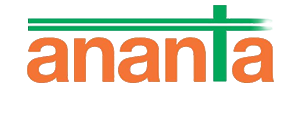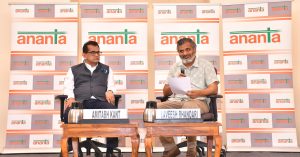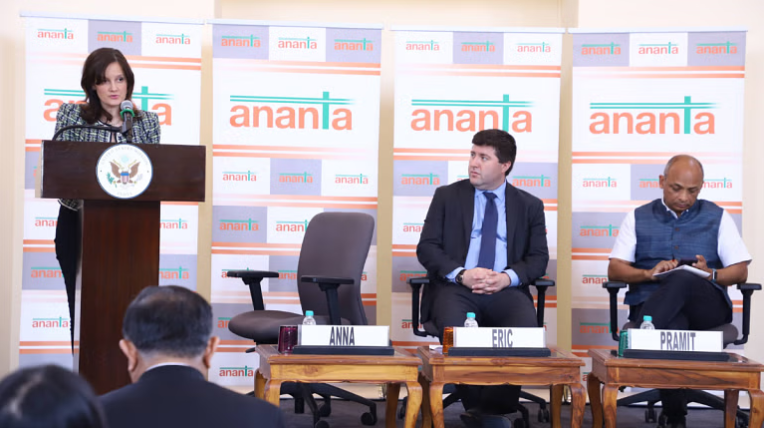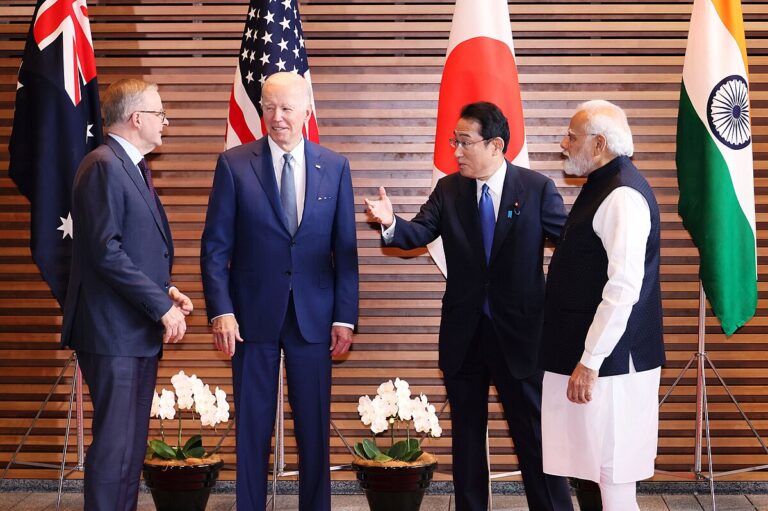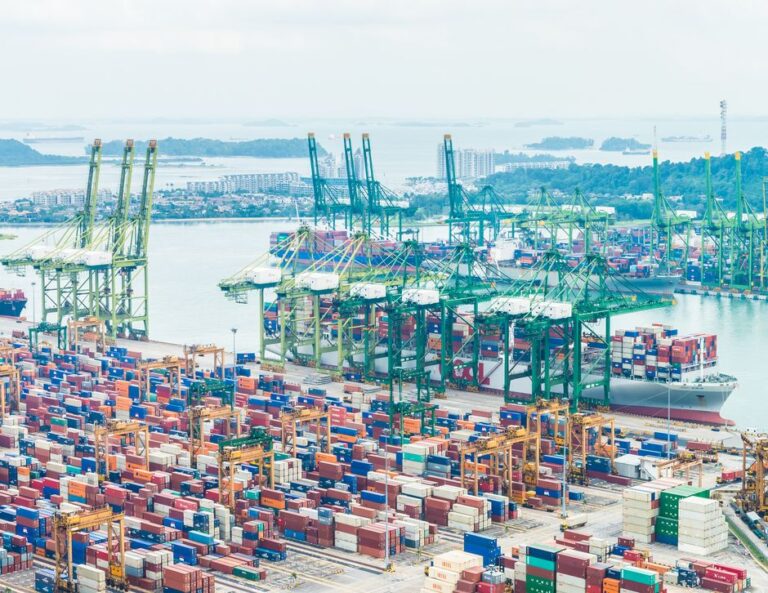Overview
• Russia’s Covid-19 challenges mount
• Mixed signals in US-Russia relations
• Libyan setback, Syrian kerfuffle
• Snippets: Putin’s ratings decline, Russia’s MFA on India-Pakistan
Russia’s Covid-19 challenge grows
Russia rapidly climbed up the global Covid-19 ladder in May, reaching third place globally (it was briefly in second place, till Brazil rapidly overtook it), with over 400,000 reported cases and over 4600 deaths by May 31. By end-May, the daily incidence figures appeared to have plateaued, with a gently downward slope. The daily death count showed a less definitive trend, persistently between 180 to 200. However, the official death count, at around 38 per million of population, compared favourably with over 300 in the US and well over 500 in Spain, UK and Italy.
There were persistent western reports that both cases and deaths were under-reported; the Russians strenuously denied these accusations. The Financial Times and New York Times published an analysis, arguing that, since mortalities from all causes in Moscow and St Petersburg in April 2020 were 2073 more than the historical average over the past five years, this should be the actual number of Covid-induced mortalities, whereas official Russian figures put it at 629. The Moscow health authorities put out a detailed breakup of the various categories of the deaths. In the ultimate analysis, as the Moscow authorities also pointed out, even if the higher figure was accepted, Russia’s Covid mortality rate per million would still be only about one-eighth of the above-mentioned European countries and one-fifth of the US.
Sporadic reports surfaced in the western media of extreme stress in the Russian health system, with dramatic stories like one of doctors jumping out of a hospital window. Most were based on social media posts and difficult to verify.
The Financial Times has an online real-time analysis of global Covid statistics, which shows that most countries have underreported Covid deaths. The graphs indicate similar levels of underreporting of deaths, from New York to Moscow to Jakarta.
[http://go.pardot.com/e/827843/7e-48f8-11ea-aeb3-955839e06441/l88f/45499418?h=U-ZGGk7rRpwNtEZS8pzOwSC13eW0uCe3fh07oWRm7zg]
President Putin was in telephonic contact with a range of global leaders on cooperation in dealing with Covid-19. The 75th Anniversary of the Allied victory in the Second World War was an additional context of many of the calls. During their conversation, President Trump offered to send ventilators to Russia, returning the favour of the Russian assistance in April. Presidents Putin and Xi Jinping appreciated the two-way cooperation: Russia had sent medical equipment when the infection in China was at its peak. Thereafter, Russia has been importing PPE from China. It was announced that about 300 million masks would be imported from China in April-May, to supplement Russia’s daily production of about 9 million masks. Vietnam, which has one of the most remarkable records of dealing with Covid-19 (a total of about 330 cases to date, 307 recoveries and zero deaths) announced it would continue to extend assistance, supplementing the 5 tonnes of medical products already sent, including 370,000 masks. Kazakhstan, Uzbekistan and Tajikstan expressed appreciation for the medical assistance from Russia.
The lockdown in big Russian cities did not close down industrial establishments altogether. Besides the hydrocarbons industry, major manufacturing units outside the main urban centres functioned normally. However, Russia’s overall industrial output shrank by about a quarter in April, as per Bloomberg estimates. The government allocated about $6.5 billion for unemployment benefits. Russia’s National Wealth Fund (NWF) decreased by about $6.1 b in April and as of May 1 amounted to about $168 b (about 11% of GDP). About $115 b (7.4% of GDP) is held in liquid assets.
President Putin’s Press Secretary Dmitry Peskov announced that he had tested positive for Covid. It was confirmed that he had not met President Putin for over a month before his diagnosis. Peskov joined the Russian PM and two other ministers as Covid patients (the other three have since recovered).
Russia announced that about 236000 Russians had been brought back to the country from Covid-affected countries. Another 30000 were awaiting return.
As the virus closed down businesses, the Russian government announced three packages of support for businesses and individuals, the last one in May, totalling about 3 trillion roubles ($42 billion). Half of it is cash handouts, the rest consisted of tax breaks or the waiving of obligatory payments. The cumulative impact is estimated at 3% of GDP. Russian economists have opined that, with the available liquid assets of the NWF (which has been created precisely for use in emergencies) and low government debt, Russia has more in the tank for use to stimulate economic revival.
Russia-US interactions
Russia-US interactions during the month contained the now-familiar mix of bonhomie, cooperation and recrimination.
Presidents Trump and Putin exchanged warm greetings on the 75th anniversary of “victory over Nazism”. According to Russian releases (and broadly confirmed by US official sources) they reaffirmed the scope for cooperation in resolving major global issues, welcomed the OPEC+ agreement for scaling down oil production and discussed responses to Covid-19, in which context the US President offered to send a consignment of medical equipment to Russia. They also discussed arms control, where President Trump (according to his press office) “reaffirmed that the United States is committed to effective arms control that includes not only Russia, but also China, and looks forward to future discussions to avoid a costly arms race.”
This telephone conversation was followed by one between the Foreign Ministers, covering much the same ground. There were subsequent bilateral consultations between their envoys on the “Middle East agenda”.
The first batch of 50 (out of the promised 200) American ventilators arrived in May; a part of a humanitarian assistance package of $5.6 million, according to the US Embassy in Moscow. Russian Foreign Minister confirmed that this assistance was funded by the Americans. He added that the assistance extended by Russia to the US was funded by Russia. This contradicted both the US assertion at the time that the US had purchased these supplies and the subsequent Russian Foreign Office statement that Russia bore half the cost.
The Russian Foreign Ministry criticized the announced US intention to withdraw from the Open Skies Treaty (citing Russian misuse of the Treaty), its reported decision to resume nuclear testing, and its foot-dragging on negotiations for extension of the new START treaty on its expiry in February 2021. FM Lavrov lamented in a media interaction that the US has been systematically dismantling arms control treaties and confidence-building measures: the ABM Treaty, INF Treaty (where the Russian offer of reviving talks and a moratorium were ignored) and the Open Skies Treaty. The CTBT has not been ratified by the US. The only remaining agreement, he said, is the Treaty on Measures for the Further Reduction and Limitation of Strategic Offensive Arms (New START): Russia would like it to remain in force for at least another five-year term, so that all the new ideas on today’s strategic stability could be carefully reviewed, “involving all those who are ready to take part in these talks” – a reference to the US insistence that China should brought into any such agreement. The Russian line has been that China’s participation in such talks should be sorted out between the US and China; further, if the participation is to be widened, US allies France and UK should be brought in as well.
Russia’s Foreign Ministry reacted with predictable indignation to the US State Department’s announcement of a competition for a US$250,000 grant to prepare a report on Russian and Soviet [emphasis added] health-related disinformation campaigns, “with guidance from the Russia Directorate’s subject matter experts, to expose and increase awareness of these efforts”.
Libyan setbacks and Syrian kerfuffles
Russia’s double game of trying to broker a ceasefire between the warring factions in Libya, while at the same time bolstering eastern leader General Khalifa Haftar’s negotiating position, came unstuck, when its ‘Wagner Group’ mercenaries had to be hastily evacuated from Tripoli after the Libyan government forces, reinforced by Turkish military equipment and Syrian rebel fighters, repelled and reversed Haftar’s military advances.
Russia has potential energy interests in Libya (it had lucrative contracts during Col. Gaddafi’s rule) and strategic interest of presence in the Mediterranean (in addition to its Syrian base). It has, therefore, cultivated the different Libyan factions, though its energy and strategic interests are mainly in the oil-rich eastern part, controlled by Gen. Haftar.
Russian military support for Haftar has been through the private military Wagner Group, to whom sophisticated Russian weaponry were reportedly provided through UAE, which (along with Saudi Arabia and Egypt) were believed to be bankrolling Haftar’s campaign.
As Haftar’s Libyan National Army (LNA) made major military advances in 2019 towards Tripoli, Turkey, which supports the UN-recognized Government of National Accord of Prime Minister Sarraj, stepped up its military support for the Tripoli government. Putin and Erdogan negotiated terms for a ceasefire by their surrogates, which (after some hiccups) was broadly adopted at an international conference hosted by Chancellor Merkel in Berlin in January 2020 and endorsed in a UN Security Council resolution in February.
Haftar’s ambition to take Tripoli militarily was not dimmed by these international agreements, nor did his sponsors try to rein him in. As Haftar’s forces, equipped with UAE-supplied Russian weapons, Chinese drones and Russian Pantsir SAM systems rapidly reached Tripoli, a concerted international effort was launched to arrest the progress. Turkey sent reinforcements to launch a counteroffensive, which had remarkable success in retaking towns occupied by Haftar’s LNA and eventually the strategic airbase of Al-Watiya. Sophisticated jamming systems were said to have disabled Pantsir’s radars and datalinks of the Chinese drones, enhancing the impact of airstrikes by Turkish drones. Pressure was put on Russia by a leaked UN report, identifying the deployment with the LNA of about 1200 Wagner Group mercenaries and Russian weaponry. The US AFRICOM commander released satellite imagery of Russian Air Force fighter jets on a tarmac in Libya and warned of a potential Russian military base on the Libyan Mediterranean coast. The Germans, Italians and the French formally informed Russia of their intention to launch Operation Irini by deploying aerial, satellite and maritime assets in the Mediterranean to enforce the arms embargo against Libya, which a UN Security Council resolution had authorized in 2016. A flurry of telephone conversations between President Putin and leaders of Turkey, Germany, France and Qatar and interactions at other levels seems to have motivated the withdrawal of Wagner group operatives from the theatre of operations.
Russia’s Foreign Minister Sergey Lavrov and his Turkish counterpart Mevlut Cavusoglu were reported to have agreed on an immediate ceasefire and a resumption of the political process. The fighting, however, continued, as the GNA sought to press home its advantage.
While these developments were a setback for immediate Russian goals in Libya, they may not yet spell the end of Russian presence in that country. Reports suggest that the Wagner Group has only been shifted to locations in eastern Libya. The LNA has been beaten back from Tripoli, but it is unlikely that the GNA and its chief backers, will make the logistical and financial investment for an extended military operation in the country. Equally, there is a limit to the military force that Russia and UAE can bring to bear in Libya through surrogates, without a formal presence which would of course blatantly contravene international law. The UN-mandated political process is in disarray, with the resignation of the UN Special Envoy Salame. The US has shown no stomach for getting actively involved in dispute resolution in the country. For all their show of unity, European countries have clashing interests in Libya, with Italy supporting the GNA and French interests in the energy-rich east. It is illustrative that when France’s Foreign Minister joined his counterparts from Cyprus, Greece, Egypt and the UAE in criticism of Turkey’s provocative actions in the eastern Mediterranean, they also condemned “Turkish military interference in Libya”, urged Turkey to respect the UN arms embargo and to stop the influx of foreign fighters from Syria into Libya, which constitute “a threat to the stability of Libya’s neighbours in Africa and Europe.
Without decisive UN, US and European participation, therefore, Libya will remain the theatre of a relatively low-intensity Russia-Turkey proxy war.
There is a delicate balance of Russian and Turkish interests; if the Turks have the upper hand in their proxy war in Libya, the Russians have so far had the stronger hand in Syria, where they have restrained President Assad’s forces from an all-out assault on Idlib, which would threaten Turkey’s interests. Reports have appeared in the Arab media of a serious attempt by UAE in March to persuade Assad to step up an assault on Idlib, with promises of generous economic assistance. The intention apparently was to keep Turkish forces bogged down in the Syrian theatre, thereby weakening their focus on Libya. President Putin apparently despatched his Defence Minister to Damascus to sternly warn Syria against this. There are reports that Turkey arranged with the Libyan government to ensure safe passage out of the besieged areas for the Wagner mercenaries.
Eventually, therefore, some accommodation is likely. There are also reports of dissensions in Haftar’s camp, with rumours that Russia and Egypt may be backing his new opponent. Russia has been suspicious of Haftar’s reliability, ever since he reneged on a ceasefire commitment in January, causing the Russian leader to lose some face with President Erdogan.
Russia’s headaches in Syria have also worsened recently with a messy public fallout between al-Assad and his cousin, a top businessman with whom many Russian oligarchs have lucrative financial dealings. Rumours of a Russian rift with Assad have intensified since the March episode and were further fuelled by a hard-hitting analysis, in a major Russian daily, of corruption, arbitrariness and mismanagement in the Assad government. The author, a senior academic of a Russian think tank with connections to the Foreign Ministry, hints that it may be pragmatic for Syria to first consolidate its governance within the area that it now controls, before trying to regain areas under the Turkish and American spheres of influence. These views would obviously be welcome to the Turks, Americans and Israelis; it is not clear if they reflect at least one strand of thinking within the Russian establishment (FM Lavrov chairs the governing council of this think tank; its Chairman is a former Russian Foreign Minister).
Snippets
Putin’s popularity falls: Alongside relentless criticism of President Putin in the West has been the reluctant acceptance of his undoubted public popularity in Russia, which peaked at around 90% immediately after the Russian annexation of Crimea. This Review has noted in the recent past a significant erosion in levels of this public support. Besides the discontent over fall in real wages, rise of taxation and inefficient/corrupt delivery of services, the economic pain caused by Covid and unhappiness about its handling seem to have dented the President’s popularity further. In a May 2020 poll (by a pollster recognized in the West as independent), President Putin was named by only 25% of the respondents as the politician they trusted most – a figure that has come down from 59% in November 2017. In fact, this figure has fallen steeply from 35% in January. These figures are of immediate concern to him, since the referendum on constitutional changes, which would enable him to stand for re-election in 2024 (see Review, 1/20) is now scheduled for July 1. The electoral law has been changed to allow e-voting online and voting by mail, overriding arguments that this system could be more easily manipulated and would make it more difficult for independent observers to detect irregularities. While Covid statistics show that its incidence in Russia has peaked, the Russian government is anxious to hold the referendum before the economic situation in Russia worsens.
Russia recalls Shimla & Lahore: To a question, obviously from a Pakistani journalist, about the “biggest outbreak” of India-Pakistan tensions since 1999 and India creating tension with Pakistan and Nepal, the Russian Foreign Ministry spokesperson reiterated the standard recent Russian line that disputes should be addressed bilaterally in accordance with the Simla Agreement and the Lahore Declaration. The reference to Nepal was ignored.
*******
…………………………………………………………………………………………………………………
(The views expressed are personal)
The Author can be reached at raghavan.ps@gmail.com
…………………………………………………………………………………………………………………
